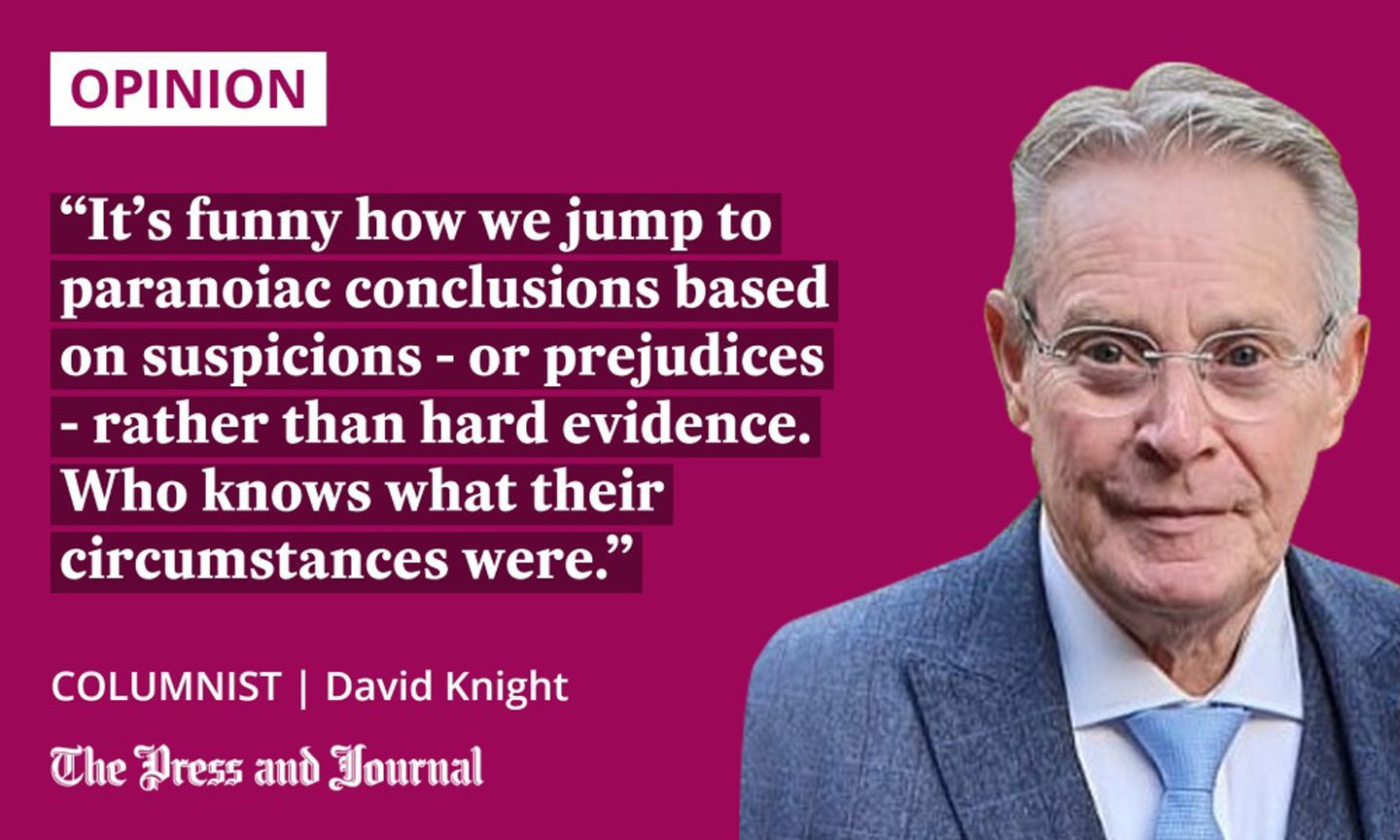Everyone’s out for something these days, and deeply suspicious that others are getting something they should have, writes David Knight.
It seems a bit harsh, but I’d like to mention the following email about the cost-of-living crisis anyway.
It arrived at a media outlet, as they discussed strikes for massive pay rises, from an irate member of the public, who complained: “NHS workers tell us they can’t afford to clothe or feed their kids. But every time I go past an NHS household near me, I see two cars on the drive and a builder’s skip outside.”
So, basically, the message was that they don’t need the money.

They had a skip outside, so we must presume they were having building work carried out.
But the correspondent didn’t fill us in on what type of building work. I wish we’d been told, because it could have had a big bearing on the impression being created that they had enough cash already.
It’s funny how we jump to paranoiac conclusions based on suspicions – or prejudices – rather than hard evidence. Who knows what their circumstances were.
I suppose what the “informant” was getting at was whether strikers in general – not just nurses – were all as hard up as they claimed. In other words, lifestyles were more at risk than livelihoods, in some cases.
But, at the end of the day, if people feel worse off, or can’t maintain a customary style of living for their family, then it’s only human nature to fight back. Even if they could cut their cloth at a push.
These are fundamentals of human behaviour: aspiration, avarice and enviously coveting what someone else has. Let’s face it, we’ve not changed much since ancient times.
I thought of this angry email as I stood in a checkout queue at Asda.
The author might have been apoplectic with rage. Especially as the customer ahead of me had just asked a cashier: “Do we still get the NHS discount?” Apparently they do.
I’m not begrudging them. If you’re like me – still receiving regular support from nurses in hospital – you are just grateful they are hanging in there.
Bad publicity sticks
Everyone’s out for something these days, and deeply suspicious that others are getting something they should have.
State pensioners will be getting it in the neck again when they pocket a decent rise in April. It’s 10% of not much in the first place, and little compared to strikers who might already be earning £40,000.
Many younger people suspect pensioners are all millionaires.
I think this goes back to research which claimed that one in four pensioners were millionaires, if house valuation was included. Yet, many of them have to survive on the state pension alone.
Others were only able to retire when modest private pensions – financed from decades of hard work – were supplemented by state pensions they had paid taxes towards over the same period.
But this type of bad publicity sticks, unfortunately.
Horace had good advice – but he moved in elite circles
I’ve been listening to someone called Horace recently, who tells me we must try being content with our lot.
Horace isn’t some bloke I met down the pub. No, he’s a poet from Roman times; full name: Quintus Horatius Flaccus.
A new collection of his work was titled How to Be Content: An Ancient Poet’s Guide for an Age of Excess, translated from Latin by an Oxford professor.
I rage at rich celebrities on daytime TV, advising us how to live more frugally
It was a quirky Christmas gift from my son; I suspect he was really looking for a book on the subject of how to calm down, but settled for this.
It’s fascinating how Horace highlights the rivalry and dissatisfaction between people in those far off days who envied and coveted the lifestyles of others – whether they be “farmer, lawyer or soldier”. His message from 2,000 years ago was that we should be content with our lot and make the most of it.
And, the book says, this is a lesson for today’s excesses.
“If you’re using a foodbank and you're earning the average nurses salary of £35,000 a year, then something is wrong with your budgeting”
🗣️ @SimonClarkeMP told @greenyfrom6am his thoughts on the #NursesStrike:
— BBC Radio Tees (@BBCTees) January 18, 2023
It’s a nice thought, but maybe as effective as holding back the tide in our new age of dissatisfaction.
Horace moved in elite circles, a pal of the emperor, so reminded me of the MP on £84,000, telling nurses recently they could get by on £35,000.
I rage at rich celebrities on daytime TV, advising us how to live more frugally. Get back to your mansions, I say.
Maybe I am exactly the sort of person Horace had in mind.
David Knight is the long-serving former deputy editor of The Press and Journal


Conversation